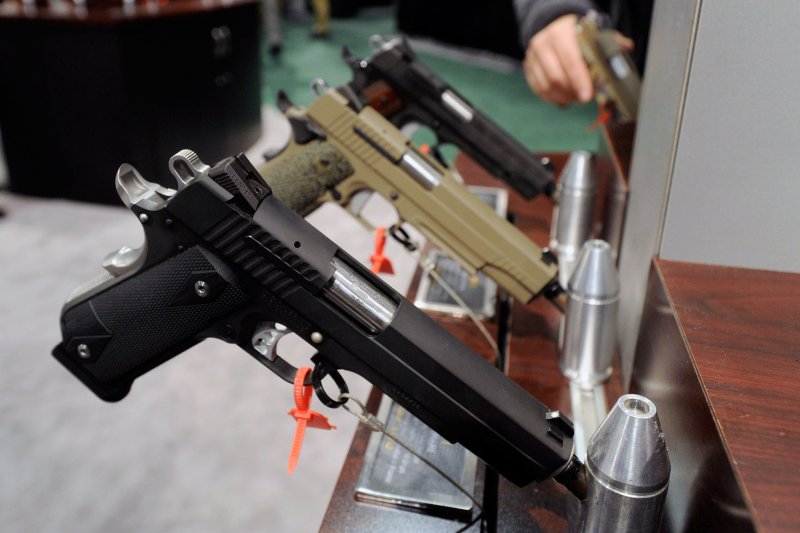WASHINGTON, Dec. 11 (UPI) -- The list of people not allowed to own a gun in the United States should be expanded to include those convicted of a violent misdemeanor, a study recommends.
It should also include restrictions of up to 10 years for people subject to temporary domestic-violence restraining orders, in contrast to the current federal standard of a permanent restraining order, said the study by the Consortium for Risk-Based Firearm Policy, a group of researchers, practitioners and advocates in gun-violence prevention and mental health.
In addition, guns should be kept for the same period of time from anyone with two or more drunken-driving convictions or two or more misdemeanor crimes involving drug possession over five years, said the study, released Wednesday.
The 31-page report, titled "Guns, Public Health and Mental Illness: An Evidence-Based Approach for Federal Policy," also calls for strengthening existing policies banning firearms access for people with histories of involuntary treatment for mental illness.
"The strongest predictor of future violence is past violent behavior," Shannon Frattaroli, an associate professor of health policy and management at the Center for Gun Policy and Research at Johns Hopkins University, said in remarks quoted by the University of Virginia's UVA Today publication.
Frattaroli and other consortium researchers spoke at the University of Virginia Dec. 2 when the consortium released a 45-page report outlining state-policy recommendations.
Wednesday's report makes federal-policy recommendations.
Drug and alcohol abuse are also associated with increased risk of violence toward self and others, said Beth McGinty, an assistant professor of health policy and management at Johns Hopkins.
"We are looking not just at mental illness, but at elevated risk," said Coalition to Stop Gun Violence Executive Director Josh Horwitz. "Who has elevated risk? Those are the people who should not have immediate access to firearms."
In all cases, people should have a process to have their gun rights restored when they no longer pose a significant risk of harm to themselves or others, said University of Virginia law and medicine Professor Richard Bonnie Bonnie, director of the university's Institute of Law, Psychiatry and Public Policy.















